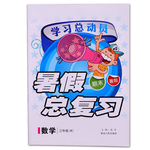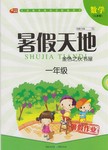题目内容
6.The main cause of differences in intelligence is not intelligence itself,but non-intelligence factors including ________,confidence and willpower.( )| A. | occupation | B. | reputation | C. | motivation | D. | contribution |
分析 句意:智力差异的主要原因不是智力本身,而是非智力因素,包括动机、信心和毅力.
解答 答案C
A项"职业";B项"荣誉";C项"动机";D项"贡献".由非智力因素包括"动机、信心和毅力"可知,答案C正确.
点评 考查动名词义辨析.只要掌握每一个名词的意思,然后再根据句子的意思选出合适的名词即可.

练习册系列答案
 学期复习一本通学习总动员期末加暑假延边人民出版社系列答案
学期复习一本通学习总动员期末加暑假延边人民出版社系列答案 芒果教辅暑假天地重庆出版社系列答案
芒果教辅暑假天地重庆出版社系列答案
相关题目
10.你接受了一项写作任务,要为本校写一篇招募志愿者快讯.
【写作内容】
请根据以下信息,写一篇关于志愿服务招募的快讯.
*社区义工服务 community volunteer service*国庆节 National Holiday
【写作要求】
只能用5个句子表达全部内容
【评分标准】
句子结构准确,信息内容完整,篇章连贯.
【写作内容】
请根据以下信息,写一篇关于志愿服务招募的快讯.
| 志愿者的选拔 9月20日之前,在全校选出30名志愿者参与社区义工服务. 志愿者的条件 至少16岁;国庆节期间参与社区义工服务活动; 有耐心、有责任感;最好有过照顾老人的经历. 服务对象 社区的残疾人,老年人; 志愿活动目的 通过帮助有需要的人提升人们的社会责任感; 呼吁人们对残疾人、老年人要有更多的关心. |
【写作要求】
只能用5个句子表达全部内容
【评分标准】
句子结构准确,信息内容完整,篇章连贯.
14.Generally speaking,the family,not the school,plays the __ role in educating children
for life.( )
for life.( )
| A. | potential | B. | primary | C. | personal | D. | professional |
11.During summer vacation,the ________ at the Disney theme park has risen to $99.( )
| A. | instruction | B. | admission | C. | permission | D. | introduction |
10.A sense of humor helps me ______ different times,so it's the most important quality to me.( )
| A. | come across | B. | pass by | C. | get through | D. | take over |